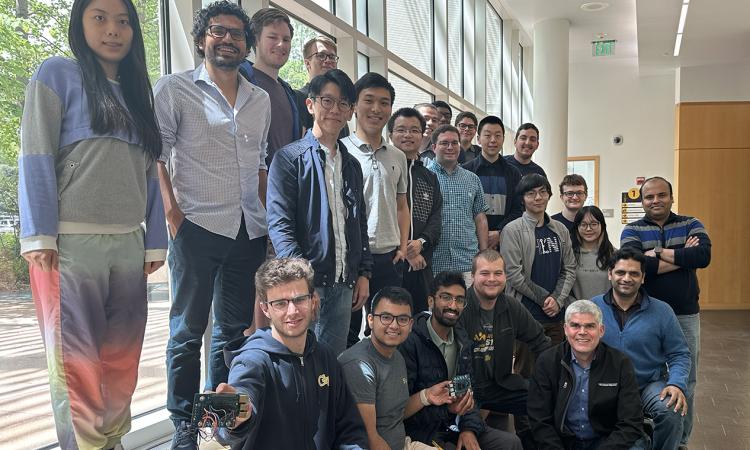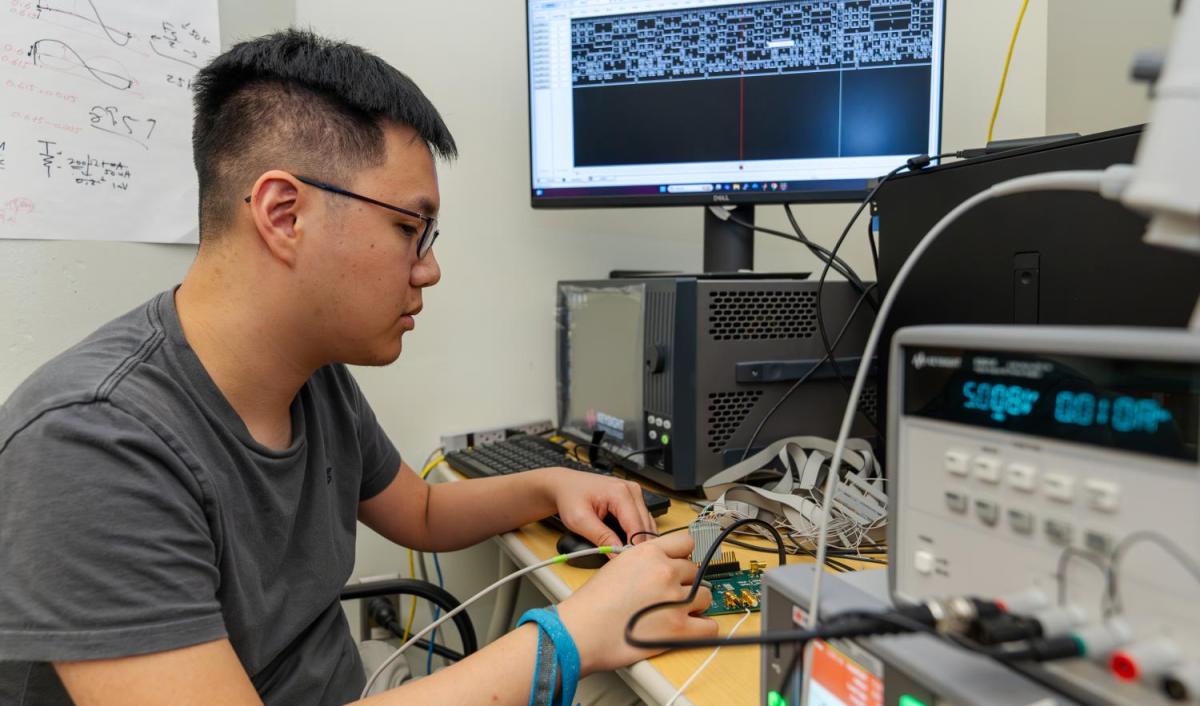
Whether it is the sound of music through your headphones or the precise control of a robotic arm, analog circuits play a crucial role in both established and future technologies.
Analog does a lot of things, but in general, it functions as the interpreter between the real world and digital devices. It transforms signals — like sound waves, voltage levels, temperature, pressure, and light intensity — into information that digital systems can understand.
As the semiconductor industry evolves, the demand for skilled analog engineers continues to grow even in this digital world.
“Analog circuits remain vital because they enable the initial data acquisition from the environment,” said Assistant Professor Shaolan Li. “That’s just the application perspective, but they are also structurally very different than digital circuits. Students need hands-on experience with real-world measurements, which are crucial for mastering analog circuits.”
To meet this demand, the Georgia Tech School of Electrical and Computer Engineering (ECE) is collaborating with Texas Instruments (TI) to launch strategic educational opportunities aimed at providing students access to industry-grade analog chip design, fabrication, and testing processes. TI is a global semiconductor company that designs, manufactures, and sells analog and embedded processing chips.
The collaboration supports ECE’s analog and mixed-signal design curriculum, including a new course and support for faculty and students through professorships and teaching assistantships. Students will further benefit from TI’s expertise through guest lectures, mentorships, and having direct access to learn from the technical leaders in the industry.
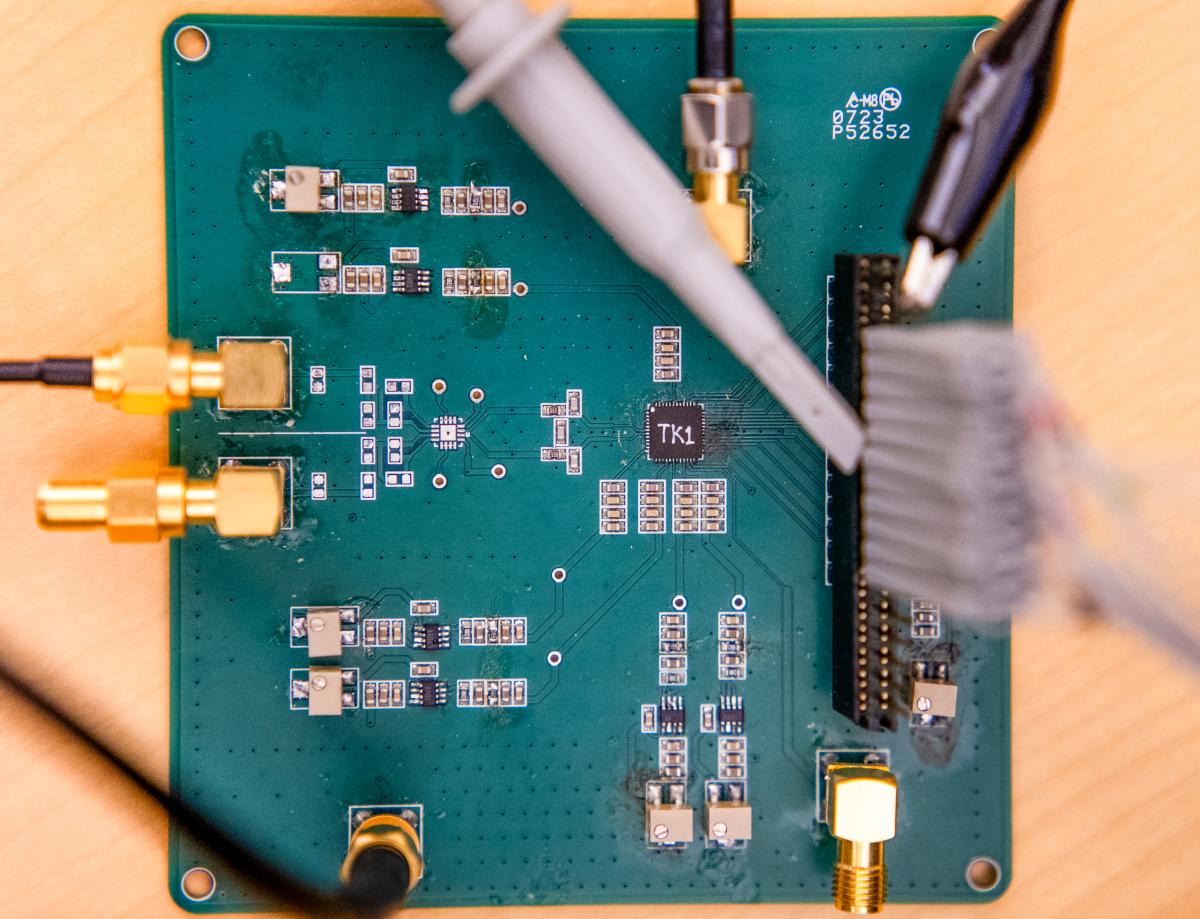
An analog chip similar to what students design (the black TK1 square) on a circuit board connected to testing equipment.
“Working with educational institutions such as Georgia Tech is important for semiconductor companies, as we look to inspire and equip future working engineers,” said Roland Sperlich, vice president for processors at TI and an ECE graduate. “This collaborative effort with academia will help address the future workforce needs in the industry, and also can spark innovations that will help shape the future of the electronics in our everyday lives.”
FIRST TO FAB
As part of the collaboration, TI is allowing Georgia Tech students to access its analog process technology and 300mm wafer fabrication capabilities. For the first time, student designs will be sent for manufacturing in TI’s newest wafer fab in North Texas.
The facility is among the most efficient, high-volume wafer factories in the world. A wafer is a thin slice of semiconductor material — typically silicon — used in the fabrication of integrated circuits (ICs) and other microdevices.
“This opportunity and level of access is incredibly valuable and transformative for our students,” said Arijit Raychowdhury, professor and Steve W. Chaddick School Chair of ECE. “As someone who would have loved this chance as a student, I am thrilled to see Georgia Tech students’ designs being fabricated in such advanced technology. TI has been an important and long-time supporter of Georgia Tech, and we are grateful for their continued backing.”
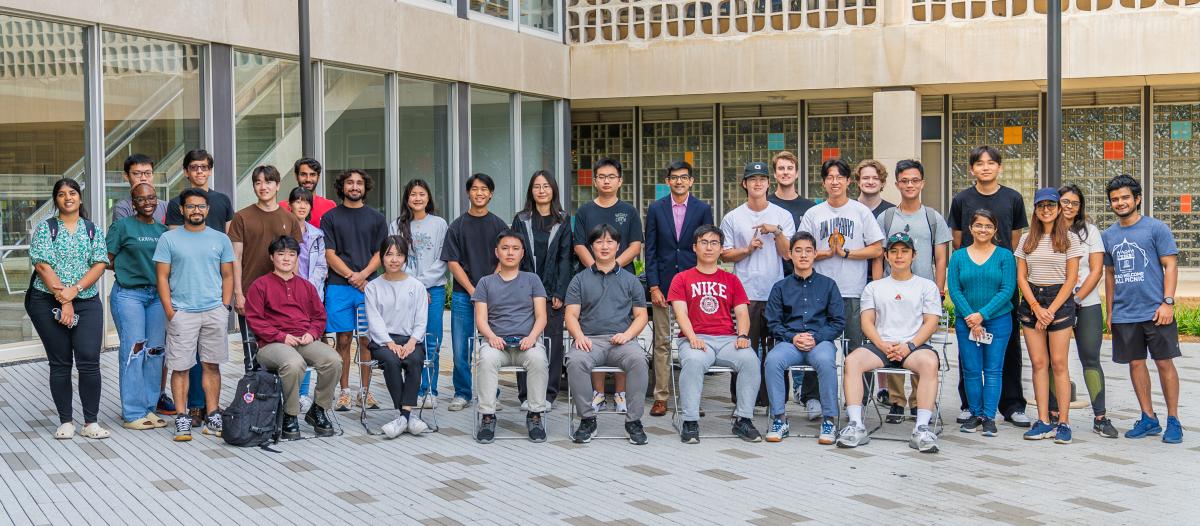
The inaugural cohort of ECE’s new analog tapeout course, which is part of new analog educational opportunities provided by the School in collaboration with TI. The majority of students are pursuing their master’s degrees, but the class includes some undergraduate students.
NEW COURSE PROVIDES REAL-WORLD CHIP TAPEOUT EXPERIENCE
The student designs are sent to TI’s fab as part of a new course, ECE 4804: Analog VLSI (Very-Large-Scale Integration) I: Tapeout. Students historically learn analog design theoretically, using simulations with generic models, partly due to the difficulty of accessing industry-grade fabrication facilities and tools.
However, the new course offers students the chance to learn by doing as they navigate the real-world chip tapeout process. This involves transferring a final semiconductor design from a computer-aided design (CAD) file to a manufacturing facility.
The analog course mirrors a similar digital circuit course introduced in collaboration with Apple in 2022. That digital course has proven to be highly sought after by students and provided a roadmap for the new analog offerings.
“For a lot of students, the reason that they’re registered for this course is because they can complete the tapeout process. There’s nowhere else [to have this opportunity] unless you go to a company,” said Li, who designed and teaches the new analog course with research engineer Tzu-Han Wang, who serves as the teaching assistant (TA).
The year-long course began this past spring, when students formed groups of four to design analog ICs, including data converters and amplifiers. These designs were sent to TI for fabrication over the summer. The completed wafers will be returned to Georgia Tech late in the Fall 2024 semester. Students will test their designs by learning to configure the test instruments, write support programs, and debug their chips.
COMMITMENT, COLLABORATION, AND CHALLENGES
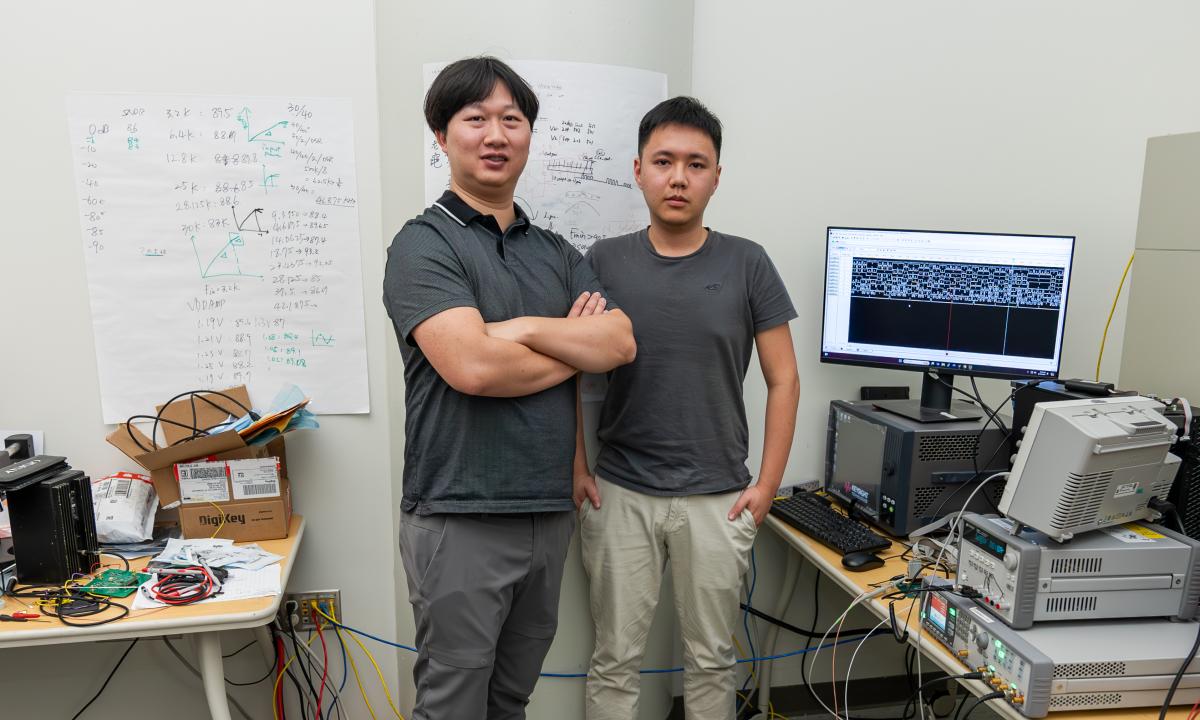
Assistant Professor Shaolan LI and research assistant Tzu-Han Wang are the first instructors of the new course ECE 4804: Analog VLSI (Very-Large-Scale Integration) I: Tapeout.
According to Li, the ability to take a design from concept to physical chip is a rare and valuable opportunity for students, especially undergraduates, but it comes with its challenges.
Industry fabs are highly specialized and expensive to operate, requiring significant investment and stringent security protocols.
“Teaching the course is also demanding,” Li said. “It requires considerable time from skilled TAs, who are not only responsible for developing pedagogy but also for ensuring that students’ work meets the necessary industry standards before their designs are sent to fabs.”

Assistant Professor Shaolan Li giving a lecture on analog chip testing. Li developed the new course born out of a collaboration with TI and ECE.
Wang, who helped develop much of the course’s instructional material with Li, added:
“A TA must be both a technician and an instructor for a course like this. It is a very different dynamic than an average course. Students often face issues that even a TA might not know how to handle, but it is exciting and mutually beneficial because we can explore and resolve problems together.”
EXPANDING OPPORTUNITIES
In addition to producing wafers based on students’ designs, TI is offering Process Design Kits (PDKs) to aid Georgia Tech faculty and students in modeling their analog IC designs. The collaboration also provides students with access to TI engineers and experts through guest lectures and mentorships, including a TI engineer embedded in the tapeout course.
Ultimately, students will understand performance issues, collaborate on hardware design, integrate components, and master the end-to-end physical design flow in analog circuits.
“Taking on this amount of work in such a short amount of time is challenging, but students are embracing it with enthusiasm,” Li said. “The experience not only enhances students’ understanding of the complexities involved in chip design and fabrication, but it also significantly reduces the ramp-up time once students enter the industry.”
Raychowdhury noted that the collaboration with TI underscores ECE’s growing focus on providing students with opportunities to learn directly from industry leaders. Future programs are being developed in glass-based packaging, heterogeneous integration, satellite communications, and more.
“Students are expressing a strong desire for more experiences like this, and we are committed to serving them,” he said. “There is a sense of pride when collaborating closely with industry leaders, when the stakes are a bit higher. It is all about ensuring students feel confident and well prepared before they enter the workforce.”
(text and background only visible when logged in)
Related Content
Collaboration with Apple Paves the Way for Future Chip Development Courses
ECE and Apple have collaborated to launch an innovative undergraduate course that offers students an opportunity to dive into the intricacies of the complete VLSI design cycle.
Georgia Tech Unveils New AI Makerspace in Collaboration with NVIDIA
By giving students access to powerful supercomputers, Georgia Tech will teach AI to undergraduates in a way unlike any other university in the nation.
